Retrospective of 14th BJIFF Workshop & Masterclass(Part 2) | Joan Chen Shares Artistic Consciousness behind Identity Change
In the last retrospective of the Workshop & Masterclass, we reviewed the valuable creative experience of independent female filmmakers shared by director Ann Hui at this year’s BJIFF Workshop & Masterclass. For film masters, the creative career is not always invariable and smooth, but is filled with changes and surprises in the process. And so it is for Joan Chen, actress, director and screenwriter, who is another keynote speaker of this year’s BJIFF Workshop & Masterclass. At the activity, based on classic works in her creative career, Joan Chen had a dialogue with director Feng Xiaogang, sharing with the audience her psychological process and artistic creation consciousness after changing the identity from actress to director.
Video mash-up of films by Joan Chen
The following is a record of the Joan Chen Workshop & Masterclass at the 14th BJIFF:
Time: 1:30PM-3:00PM, April 25, 2024
Theme: From “Best Actress” to Famous Director: A Rosy Life of Joan Chen
Keynote speaker: Joan Chen, actress, director & screenwriter
Panelist: Feng Xiaogang, director
Moderator: Nie Yijing, hostess of Beijing Radio & Television Station
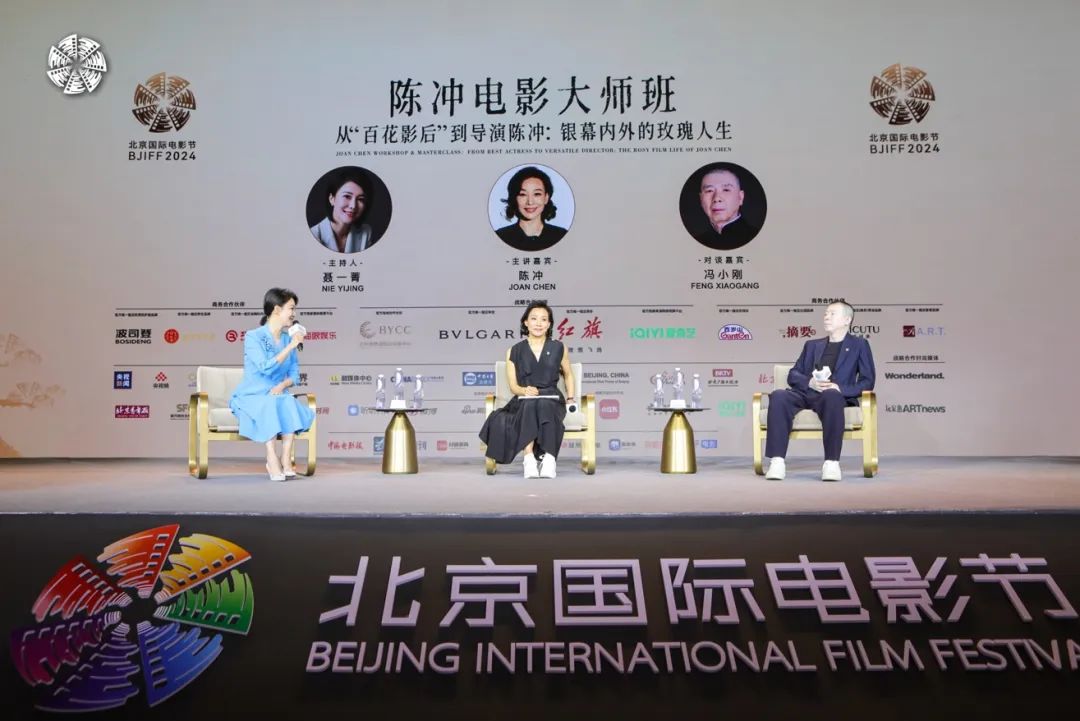
Joan Chen Workshop & Masterclass
From left to right: Nie Yijing, Joan Chen and Feng Xiaogang
Nie Yijing: Seeing you show up together has immediately reminded us of the film Hachiko starring both of you, which is very warm and touching. It was also the first time that you worked together in a film, so how did you feel, Ms. Joan Chen?
Joan Chen: I was actually very happy, because I had long admired director Feng’s performance. Kung Fu Hustle is a movie I’ve watched countless times, but in Mr. Six, his acting is totally different. I was very curious about what he would be like when playing the professor in Hachiko, so I was looking forward to working with him at that time.
Nie Yijing: What impressed you most about that collaboration? Which moments are particularly unforgettable?
Joan Chen: There are no such moments, as Feng’s performance in Stephen Chow’s Kung Fu Hustle is very extreme, and the role he played in Mr. Six is irreplaceable. He is so warm-hearted and kind, which I didn’t expect to see in him. When we chatted, he never said negative comments, and no matter who we talked about, he always shared good things.
Nie Yijing: I couldn’t agree more. In Hachiko, the professor you played in the film is also a kind person. I heard before that you are a fan of Ms. Joan Chen?
Feng Xiaogang: Yes. When director Xu Ang invited me to play this role, I asked who would play the wife. He replied, Joan Chen, and I agreed in a second. When I was about 20 years old, I always watched open-air movies on the playground of the army’s art troupe. Joan Chen was the idol of all of us at that time. Seeing her youth movies, I thought that she was too beautiful and good. When there was an opportunity for me to play her husband, it was such an amazing feeling for me.
Besides, I think Joan Chen is a multi-talented actress with many traits. In my view, it is very important for a professional actor not to always play himself or herself, but to be able to shape roles. Joan Chen has created very contrasting characters. I didn’t expect that Joan Chen, who starred in The Last Emperor, could play the role of a Chongqing woman in Hachiko, portraying a very capable ordinary woman -- playing mahjong, handling things quickly, scolding her husband and taking care of the whole family. She also spoke the Chongqing dialect in the film, which is amazing.
Nie Yijing: Ms. Joan Chen is very versatile, so what is the biggest difference between working with her in this film and appreciating her performances on the big screen 20 years ago?
Feng Xiaogang: Actually, I was still a little nervous. I'm older than her, but she’s more experienced in films and is kind of my predecessor. She was already an excellent actress in the 1980s. I started my directorial career in 1990, so she was engaged in the business 10 years earlier than me. She is still active on the screen today. Not only has she achieved remarkable results as an actress, but she has also made steady progress as a director.
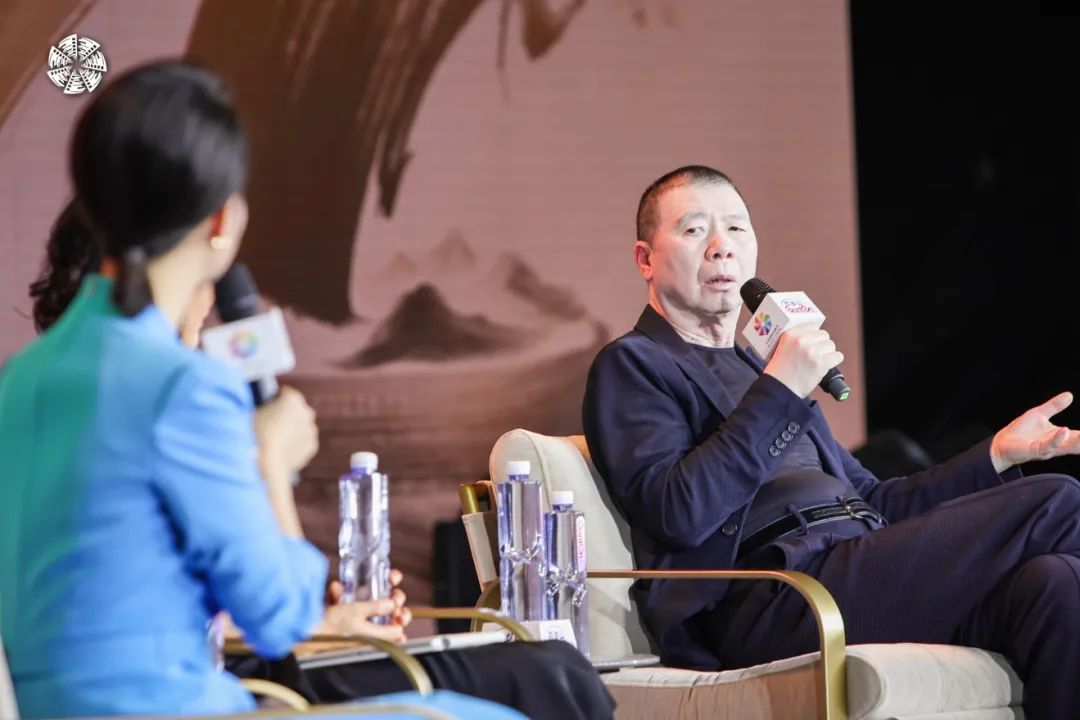
Feng Xiaogang
Nie Yijing: You had an unforgettable experience in Hachiko, in which you vividly portrayed a local woman with the authentic Chongqing dialect. How did you prepare for the role and could you speak the Chongqing dialect before?
Joan Chen: I couldn’t speak the Chongqing dialect before. My native place is Chongqing, so I used to hear the Chongqing dialect at my grandpa’s house as a child. That’s part of the attraction for me. When I saw the script, I might not have accepted the role if it wasn’t played in the Chongqing dialect. I thought it would be the best entry point for me. As long as I completely master the dialect, the film would display regional features and present a bustling city to the audience. When I got off the plane, I was looking for local women across the city, who were wearing very fancy and colorful dresses with dyed hair of all colors.
I remember when I came out of a public restroom, I saw an old woman wearing leather shoes in bright red, which were a little worn out. I was very curious and took a picture of her, as I believed she would like such a pair of shoes, which helped me slowly fit in. Language is indeed the entry point, with which I think I can find the answer.
Nie Yijing: The down-to-earth style of the film is attractive to the audience. How did you present quarrels, chatters and conversations between husband and wife in life in your performance?
Feng Xiaogang: Joan Chen was very natural and real when she entered the shooting site. In the scenes where we’re eating and she’s questioning me, her Chongqing dialect and her look made me feel like that’s what my relationship is with her. I come from Beijing and married such a woman in the local area. Besides, my daily life abilities are not strong, and she’s in charge of everything in the family. Therefore, the relationship is depicted very precisely throughout the movie.
Nie Yijing: The subject of Hachiko is very familiar to the audience worldwide, so what were the challenges in creating the Chinese version, or how to make it more localized?
Feng Xiaogang: Director Xu Ang excels in localization, and he also adopted such transplantation in the play The Last Laugh. As for Hachiko, in both the Japanese and American versions, the protagonists sit at the train stations, while the Chinese version selects the gate of the cable car station with distinctive Chongqing characteristics, making the film very localized. Moreover, regarding the selection of the dog, both the Japanese and American versions use Akita, but director Xu Ang uses Chinese Rural Dog, an ancient dog breed in China.
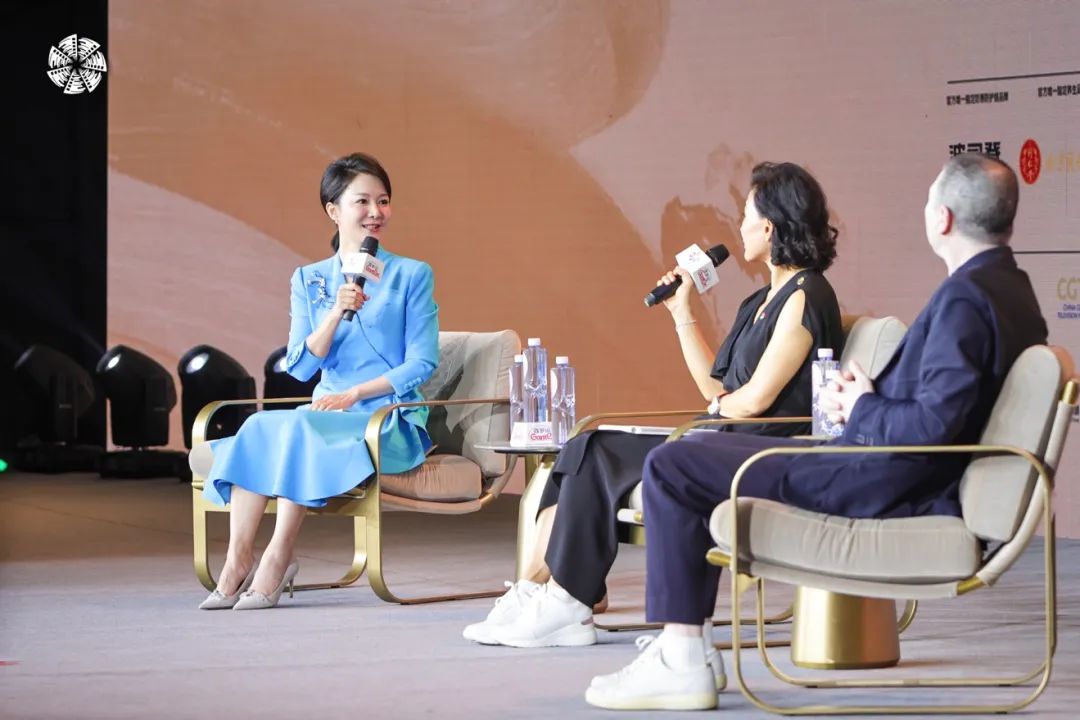
Joan Chen Workshop & Masterclass
Nie Yijing: Many details make the Chinese audience feel that it is a very real and touching story that happened around us. In the film, there is also a scene of eating noodles, which is very emotional and is one of your classic performances. How did you think about silently conveying the characters’ inner pain to the audience?
Joan Chen: Actually, I like the arrangement of the script, because the movie has foreshadowed that on an ordinary day, Professor Chen went on a business trip, and all of a sudden he couldn’t come back. This kind of thing happens in life, and at that moment you can't really feel that this person is really not coming back, because he will go out every day, and sometimes he will come back in two or three days. In the film, when she knew that Professor Chen had died, she wanted to cry without tears, and she didn't seem to fully realize that this person really wouldn’t come back, which is what I appreciate about this script.
She poured Steamed Pork Belly with Preserved Vegetables in the noodles because she forced him to finish it the night before he left. When she saw this dish again, she tasted it and realized that her husband was like a stranger at home all his life. Every time we ate noodles, the rest of us scooped up a lot of chili sauce as Chongqing people like spicy food, but he always ate light food.
Therefore, when eating the noodles, she knew that there was no chance left, and this person would never come back. This sensory stimulation gave her such a strong pain of losing her husband forever. This was not arranged in the script, but for me, acting with sensory stimulation would be more vivid.
I also appreciate that the director didn't give me a very clear close-up. The sadness in many movies is filmed with the camera near the face, which is actually very uncomfortable. This scene was filmed with the camera outside the window, and part of the view was blocked by the window, presenting a better effect.
Nie Yijing: You also created many classic female images on the screen, such as Wang Chiao-jui in Red Rose White Rose, which is a very classic female character. Her appearance is a famous scene, when Wang Chiao-jui met Tung Chen-pao for the first time. Are there a lot of details in this design to show the character’s personality and pave the way for their relationship?
Joan Chen: The filming site of Red Rose White Rose was very special. As there were many mosaic walls in Shanghai in the 1930s, so the walls in the movie were re-paved after the tiles were smashed, making people feel emotionally chaotic. She appeared in the bathroom with soap bubbles on her head. The bathroom is all white, the bricks are all messed up. She walked past a textured brick, made of special glass in that age. After coming out, it was Tung Chen-pao who saw her first, and the audience saw something from Tung’s eyes. She said hello to him very casually, and held his hand with a handful of soap bubbles, leaving them on Tung’s hand. She didn't show off and was very naive, but she let people feel that she was purposeful. In my view, as an actress, I just need to finish these actions naturally. The whole shooting site and even the whole movie gave me one thing -- in the movie there is a red rose and a white rose, and in a short time, you must believe that these two people were able to attract each other. As an actress, this is good fortune for me, and this makes me feel the charm that the movie and the screen can give to me.
Nie Yijing: In the film, another scene that Wang Chiao-jui in hospital was asked by Tung Chen-pao to break up was also very intense, reflecting rich feelings of the character.
Joan Chen: Wang Chiao-jui was very naive. She usually didn’t have much to do, and the best game she played was flirting with men. Eileen Chang depicted her very well in the novel, writing that if a person learned a skill, and he or she couldn't stop using it, but it's just for fun. However, when she met Tung Chen-pao, this didn’t work, as she really fell in love with someone for the first time.
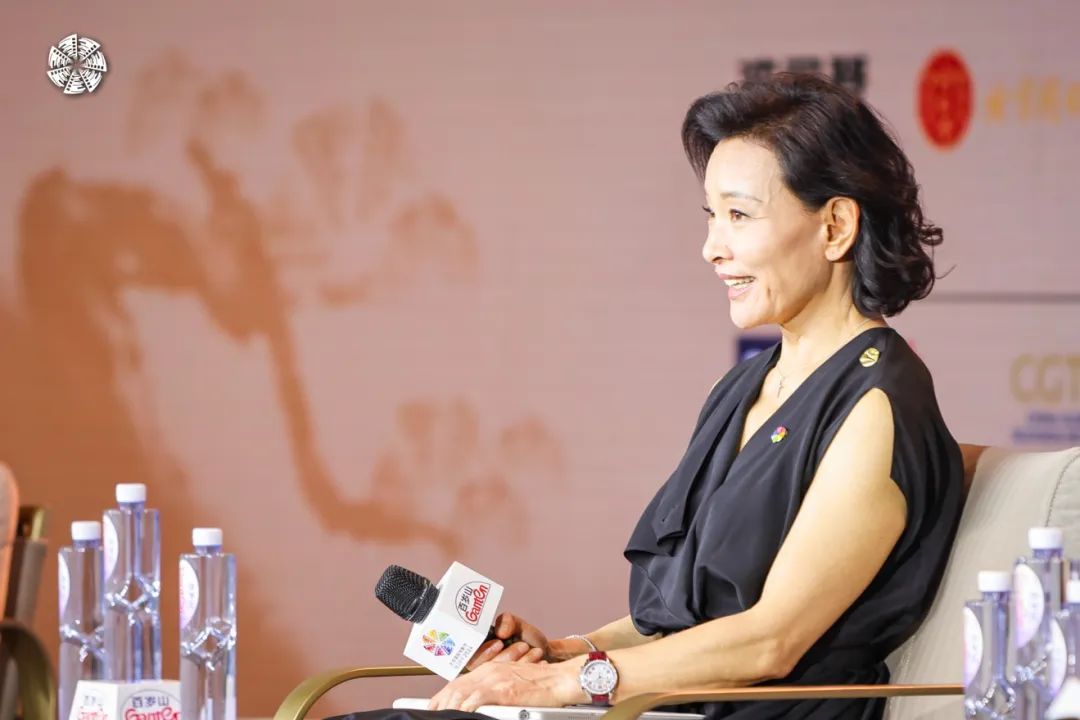
Joan Chen
Nie Yijing: This performance shows diverse inner feelings of the character. Just as you said, she finally gave her heart, but was rejected. How did you show such pain in her heart?
Joan Chen: At the beginning of this scene, she didn't know that it was really over, but only knew that she had made changes. “I wore very conservative clothes, and I could be a wife.” She's not someone who can take care of others, but she would get him a urinal and take care of him. Wang Chiao-jui was crying there, but when she heard some words, she was really stung. When a person is really hurt, there are no tears. The biggest pain is not crying, because you’re unable to cry. That's how I handled the scene at that time.
The first thing I want to do in acting is definitely to be heartfelt. It doesn't matter whether it succeeds or not, but this is the first thing I will take into account. The second thing I will consider is about how to make something have an atypical choice and how to deal with it emotionally to make it unique.
Nie Yijing: What do you think is the biggest reward after playing a character with such rich inner feelings? In this film, apart from acting, there are many other details that have carefully assisted in character development, such as costumes.
Joan Chen: I remember very clearly that it took about a week to complete styling at that time, and now it usually takes a day or two at most. To better play Wang Chiao-jui, I’ve tried on many earrings, and took pictures. I think this pair of earrings is particularly successful. When the pair of earrings slightly shake, they can catch some light, from which you can feel her restless mind, so such details are very important.
Lai Pan once said that as long as he serves as the art director of a film, both the leading actress and the film will be always awarded. I would especially like to be his heroine, as he knows how to make the appearance of your character memorable and particular. It’s something that other departments give us.
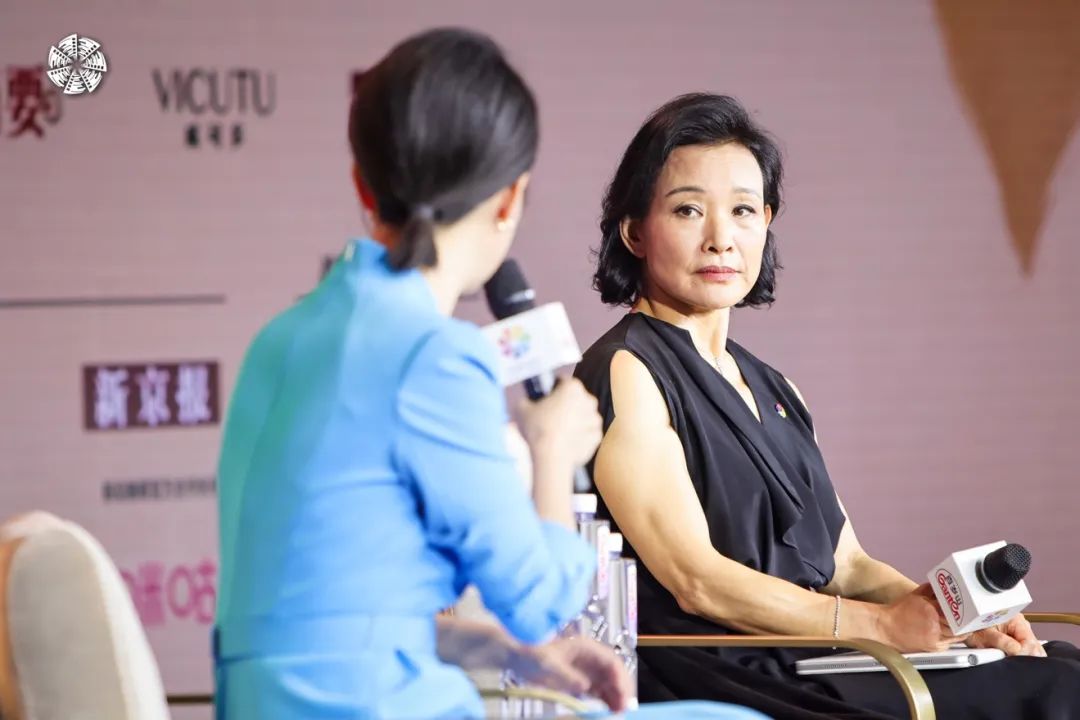
Joan Chen at the BJIFF Workshop & Masterclass
Nie Yijing: People are probably most impressed by the role of Wan Jung you starred in The Last Emperor. This film has helped you walk onto the international stage, and won nine awards at the Academy Awards that year. Until now, it is also an amazing film, and the scene of your “eating flowers” is also very classic. How did you vividly and truly show the character's complicated emotions of “feeling depressed but having nowhere to vent” at that time?
Joan Chen: I think all directors seem to be like that, and he (Bernardo Bertolucci) really loves his actors. When he encountered unpleasant situations during shooting, he would speak loudly. However, as soon as he turned around and saw us, he would immediately calm down. He really loved us. A good director is also a psychologist, who has to carefully observe his actors and see what inner power he can use. When I was working with him, I felt like I would always have to be attentive, imagining his aesthetics and wishing to give him the best. I was a little fascinated when I was acting in this scene, as if I stood on a high place far away, or I was the director, watching me from the monitor. It seemed that there were a pair of loving eyes looking at you. I cried after I finished rehearsing and acting. In fact, I didn’t do much to deal with the scene, as the presence of a director makes you wish to show the best in you. And he knew there was a need for release in my heart. The catharsis and restraint of emotions are the credit of the director.
Nie Yijing: Speaking of directors, every famous director has created a lot of classic scenes, leaving endless aftertaste. I remember that your directorial Big Shot’s Funeral, has also echoed with The Last Emperor, so what’s your consideration for this design?
Feng Xiaogang: In the movie, there is a famous Hollywood director wishing to shoot a film in China, but what kind of movie do I want him to make? He wouldn’t make a Chinese movie under other subjects, but wants to shoot The Last Emperor. The Last Emperor is a film that left me with a very strong sense of beauty, and the director’s film language, including Joan Chen’s performance, is particularly charming. There are some movies that will leave a deep impression in your entire life, and The Last Emperor is such a movie.
Comparing the two versions of The Last Emperor by Bernardo Bertolucci and Han Hsiang Li respectively, I found that the directors in the East and the West have different concerns on the same thing. For example, director Han Hsiang Li actually focuses more on the dynasty, while Bertolucci places his focus on people. Regarding the scene of the little emperor’s accession to the throne, Han Hsiang Li used fancy setting, while Bertolucci's camera followed a child stepping over the threshold. In Bertolucci's view, from the day the child took the throne, it was destined to be the beginning of his tragic life. Han Hsiang Li filmed the emperor’s sitting on that seat, which was his glorious moment in the director’s view. The two directors have two completely different understandings.

Joan Chen at the BJIFF Workshop & Masterclass
Nie Yijing: Just now, you said that Joan Chen in this movie is particularly charming. As an excellent actress, what is the specific embodiment of her charm?
Feng Xiaogang: It’s necessary to catch the audience’s eyes. An actor plays a big role in a film, as he attracts a lot of people’s attention. This is an ability, and what an actor needs most is confidence. When shooting a movie, the director has a lot to worry about, so sometimes he is in a hurry and his emotions can get out of control. When facing actors, the director has to hide emotions under no circumstances. Actors need to perform in front of the camera, and sometimes cry and laugh loudly, with the staff watching behind them. It takes a lot of self-confidence to cross such a threshold. When an actor is scolded by the director on the spot, it may destroy the actor's self-confidence, which is simply too tragic.
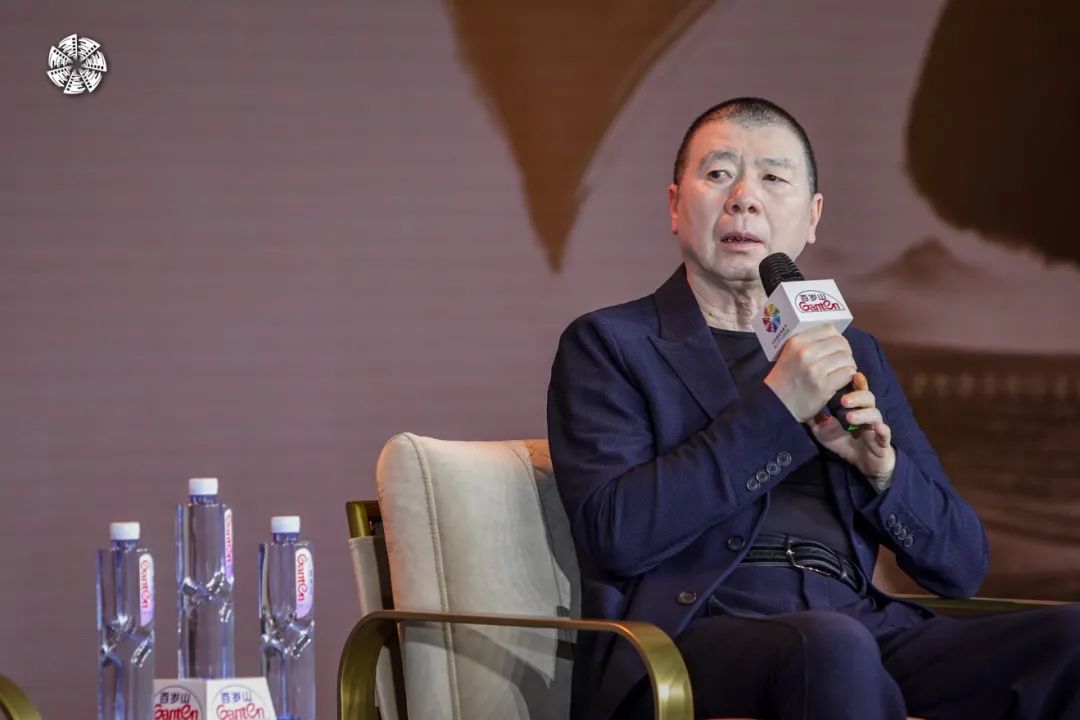
Feng Xiaogang
Nie Yijing: You two are both directors and actors, so you may have a better understanding of actors. It is said that a director is the best actor, as the director has to play every character in his story. How do you think the two identities help each other? For example, as a famous director, you have also become an actor, so how do you think this experience in acting has helped with your directing?
Feng Xiaogang: I think it is very helpful. I was not engaged in acting before, so I always thought it was not a difficult thing. But when I serve as an actor, I know that maybe the greatest pressure is placed on actors. I have worked with Tim Yip and William Chang, and both of them will make preparations for shooting by all means, with hundreds of people working on costumes, and an actor’s styling completed in three hours. But all these efforts have to be reflected in actors. Therefore, I know that the working hours of an actor are very important. If you haven't worked as an actor, you may think it's okay to shoot for two more hours. But in fact, the length of an actor’s working hours in his highest mood is eight hours. I heard that some TV series often have to be filmed for 16 hours. An actor can finish shooting, but can’t guarantee that he is always in the fullest emotions. In the end, he could have given you 100 scores, but only gave you 60 because of the fatigue. This is what I’ve learned after being an actor, and I think this is very important for me to work with actors in the future.
Besides, as a director, you must tell actors what you really want, because a good actor can actually do anything, playing a role in one direction or the other direction. Therefore, directors should tell actors clearly what direction they exactly want.
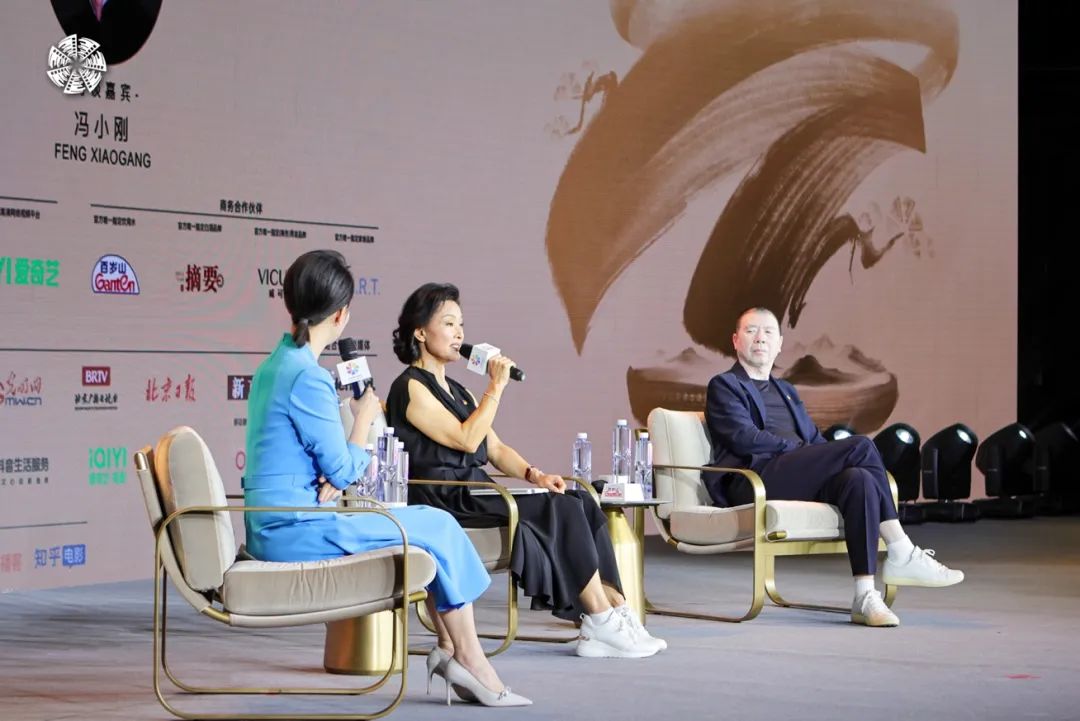
Joan Chen Workshop & Masterclass
Joan Chen: Feng Xiaogang shared a lot with us, saying that he was already a famous director before he started acting. We know what kind of temperament Xiaogang has. In fact, he didn't play so many roles, but I remember them very clearly and vividly. For the teacher he played in Jiang Wen's movie, I can’t forget it after watching the movie. His performance in Kung Fu Hustle is also memorable, not to mention his role in Guan Hu’s Mr. Six.
When I went back to acting after I became a director, I also had different feelings. I particularly understand the difficulties of directors and cinematographers, and become particularly conscious. I will collaborate as much as possible and try not to bother others.
Nie Yijing: Filmmakers should understand each other and put themselves in others’ positions, so as to promote the release of more outstanding works. Ms. Joan Chen has also directed many excellent films. In Hero, we see the brilliance and strength of women, and some designs are very creative, such as the plot of expressing the love between long-distance couples through video calls. What inspires your passion and impulse to create this subject?
Joan Chen: At that time, I learned that three female directors would complete a film together, but we didn’t know each other’s stories. I looked for many stories, and I found this story of losing the beloved. In my view, there is no stronger emotion than the loss of a loved one, and this is the only subject that attracts me all my life. You can consider short films as an exercise and experiment, so at that time, I decided that this pair of lovers would not show up in the same frames. They were in two different cities, and could not meet each other during a special period. They missed each other, and the boy was diagnosed with a terminal illness.
It occurred to me that all the information at that time came from mobile phones, which is the only channel for contact with the relatives. The content in your mobile phone almost became a thing that’s more real than the reality of your life. It gave me a sense of excitement, as at the beginning I assumed that it was a story about a girl and her mobile phone.
In Wings of Desire, after the angel first felt human desires, suddenly the girl from the circus appeared in the fullest colors. Then I realized that in my story, the mobile phone was also a more real and important thing, so I could only make the inside of the mobile phone colored. I suddenly became excited, and just felt like I could and wanted to shoot this story.
Besides, the two lovers appeared in different frames, so the key was to make people believe that they were deeply in love in half an hour. In this case, it came to my mind that the whole world was black and white, and the mobile phone was quite small-sized at the beginning, but even if there was a little color, the audience would first focus on it first. Every time the color appeared, we knew it represented messages from the beloved. So I hope that the audience will follow the hero and the heroine to immerse themselves in the film through this mobile phone.
Each director is excited about different things, but there must be a thing that will make you want to have a try. This is the experiment I wanted to do, which was quite novel.
Nie Yijing: Do you have any unexpected experiences after working with two excellent young actors, Jackson Yee and Huang Miyi?
Joan Chen: I was amazed by the surprises given by these two actors, and I was definitely not as mature as them at the same age. In particular, I was a little worried about the life experiences of Jackson Yee, who was not yet 20 years old at that time. I also didn't know if he had ever been in a relationship, but I found that I was deeply impressed by superb acting. Moreover, he boasts both the explosive power and a natural sense of proportion. Compared with many other actors, he looked more real to my surprise, for which I am very grateful. Jackson Yee was very quiet, and didn’t like to talk much. I didn't have many opportunities to communicate with him before filming. I remember that I once asked director Derek Tsang for advice, and he replied that Jackson Yee would read letters carefully and suggested I should write to him. Therefore, I wrote him a long letter earnestly, telling him about the characters, and recommending many documentaries.
Nie Yijing: I would like to ask both of you to share with us your creative plans in the future.
Joan Chen: At the rest of the year, I will be engaged in acting, without any plans for directing. I will play a role in an original Christmas movie of Amazon, which is a comedy that I rarely got a chance to star in. I will also participate in the re-shooting of The Wedding Banquet, which was originally directed by Ang Lee. Besides, I am going to Quebec, Canada to star in a movie where I will play a housewife who suddenly falls in love in her old age, which I’m most looking forward to, because I have to learn French.
Feng Xiaogang: I’m going to make a low-budget film probably in July. Now a lot of new directors are making movies at a very low cost, but the quality is good. Therefore, I'm going to have a try, which is a story about several girls who commit a crime and reintegrate into society after their release. Besides, I will shoot a high-budget film at the end of the year.
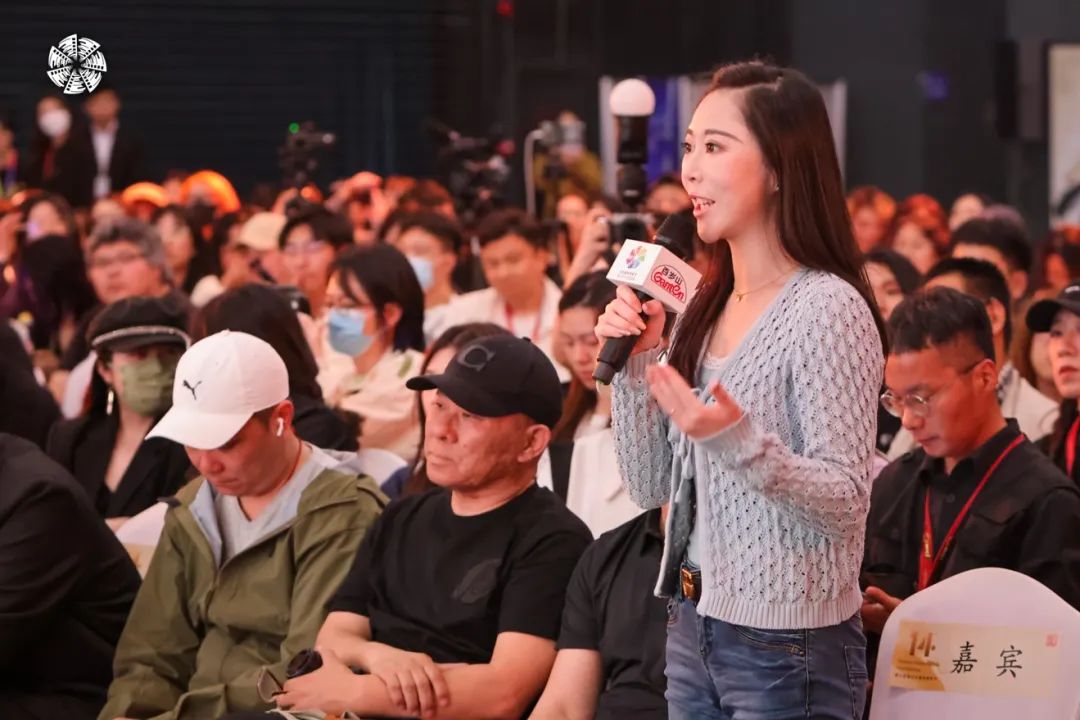
Joan Chen Workshop & Masterclass
Question 1 from the audience: Hero is a film that was jointly completed by a few outstanding female directors. What unique perspectives do you think female filmmakers have in the film industry?
Joan Chen: Women-focused films are a particularly hot topic right now, and I think the time is ripe. In the past few decades, movies have been more masculine, but in recent years, many female directors have made excellent films, expressing women's own perspectives and opinions. In fact, I don't think it is that only female directors can direct women-themed films, and many male directors can also shoot feminist subjects. Sometimes the topic of feminism seemed to be commercialized. When looking for investment, you said it is a feminist film. Also there was an action movie that was remade after changing the male protagonist into the female one. Filmmakers should truly understand the power of women, recognize our quality, and more importantly learn about our troubles, struggles and dilemmas. A movie changing its heroic figure to a female character is not called a women-focused film. I think that women have a great strength that men cannot have, which is motherhood. Even young girls boast motherhood, sympathy and tolerance, making them resilient and powerful.
In addition, many female characters seem to be relatively simple and are the objects of protection. I think an authentic women-focused film should portray female roles in a complex and complete manner, who have both shortcomings and advantages.
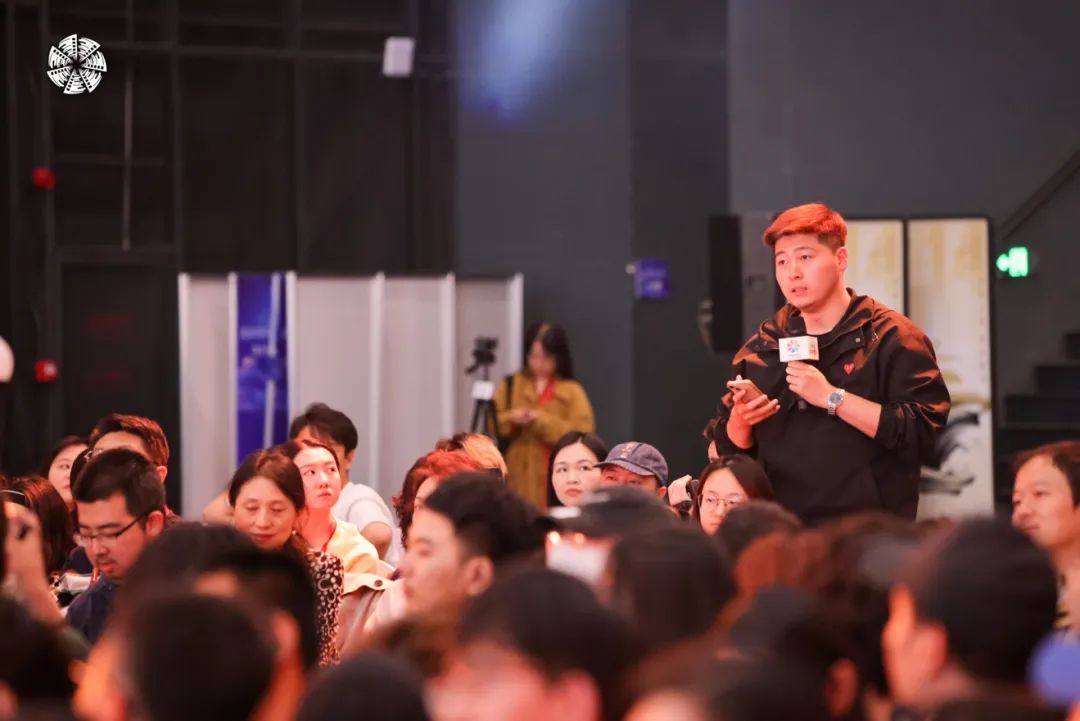
Joan Chen Workshop & Masterclass
Question 2 from the audience: Hello, Ms. Joan Chen, yesterday I watched Dìdi, a film by director Sean Wang, which can be understood as the Asian-American young director's view of the world and family. You also starred in the film and served as the executive producer. What is the reason for your participation in this film, and do you have any plans to continuously support young directors in the future?
Joan Chen: I really enjoy working with young people, from whom I can gain a lot of energy and learn a lot of new things. Director Sean Wang wrote a great script, and I was moved by his script. I also knew that he wrote an autobiographical script about his own mother, so he first let me meet his mother before collaboration. I also starred in a script written by a new director 20 years ago, which is also a story between the director and his mother. I was touched by the scripts of the two films, as I believed that it's not easy for those who never made a film before to write such good stories.
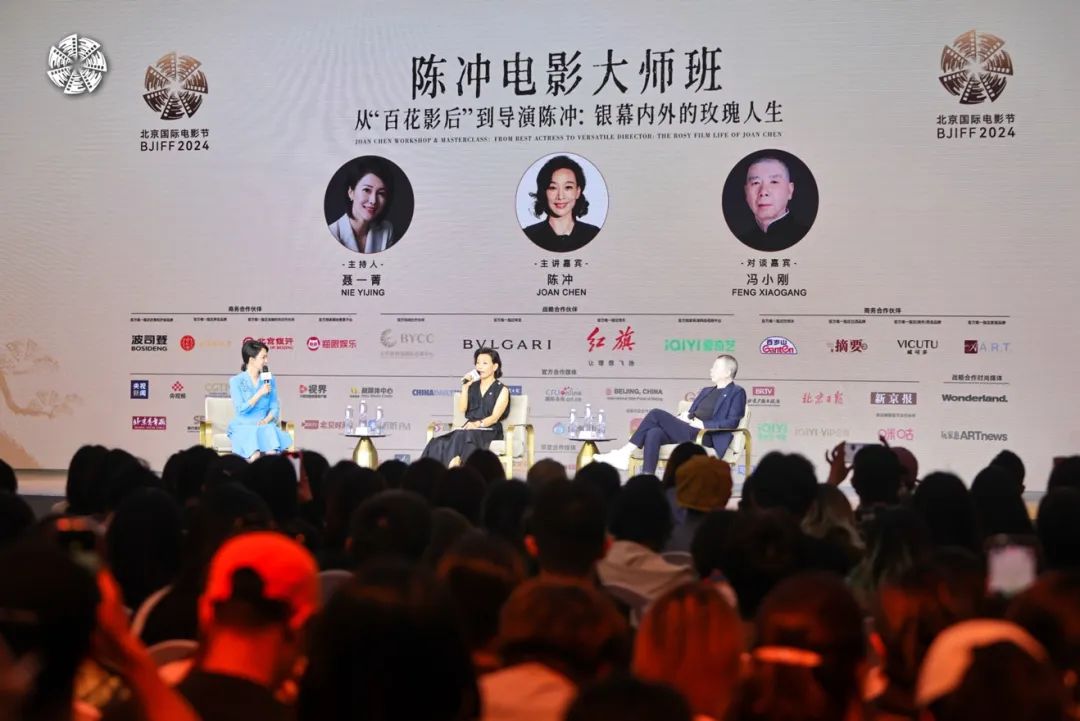
Joan Chen Workshop & Masterclass
